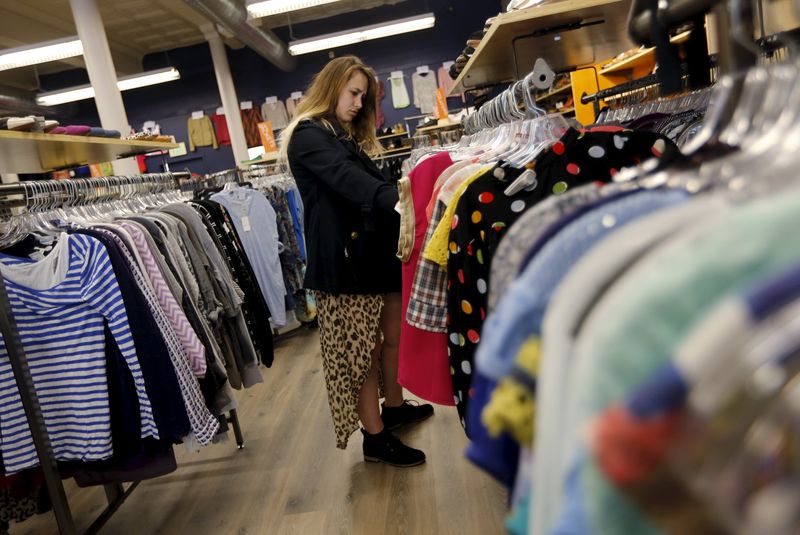U.S. retail sales posted a broad-based gain in May and the prior two months were revised higher, suggesting consumer spending is healthy enough to limit the case for a Federal Reserve interest-rate cut in the near term.
(Bloomberg) -- The value of overall sales rose 0.5% from the previous month after a 0.3% increase in April that was revised from a decline, according to Commerce Department figures released Friday. The median forecast in Bloomberg's survey of economists was for a 0.6% gain.
Sales in the “control group” subset, which some analysts view as a more reliable gauge of underlying consumer demand, climbed 0.5%, topping projections, after an upwardly revised 0.4% gain. The measure excludes food services, car dealers, building- materials stores and fuel stations.
The pickup signals steady wage gains and the lowest unemployment in a half-century are supporting consumer spending, which accounts for most of the U.S. economy, amid signs of weakness in other indicators. Investors have been expecting the Fed to lower borrowing costs in July as President Donald Trump's trade war weighs on growth, though the central bank may wait for clearer evidence of a slowdown before making such a move.
Chairman Jerome Powell will give more insight into the Fed's thinking at a press conference Wednesday following a two-day meeting of policy makers.
Online Shopping
Eleven of 13 major retail categories increased, led by a 1.4% gain in nonstore retailers, the most since January. That includes online shopping destinations such as Amazon.com Inc (NASDAQ:AMZN). Electronics and appliance stores as well as sporting goods, hobby, musical instrument and book stores recorded 1.1% increases.
Filling-station receipts increased 0.3%, the report showed. The figures aren't adjusted for price changes, so the higher retail sales suggest increased demand as fuel prices fell. Consumer- price index data this week showed gasoline costs dropped 0.5% in May from the prior month.
Sales at automobile and parts dealers advanced 0.7% after decreasing 0.5% in the previous month, revised upward from a 1.1% drop. Industry data from Wards Automotive Group previously showed unit sales rebounded in May.
Excluding automobiles and gasoline, retail sales increased 0.5% after a 0.3% gain the previous month, which was revised from a decline.
The only sectors to show declines were food and beverage stores, with a 0.1% drop, and miscellaneous retailers, with a 1.3% decrease. At the same time, the April figure for miscellaneous stores was revised to a 1.7% increase from little changed.
Get More
- Estimates in the Bloomberg survey for total retail sales ranged from a gain of 0.3% to 1.2%.
- The retail-sales data don't capture all of household purchases and tend to be volatile. Personal-spending figures, which also include services, will offer a fuller picture of U.S. consumption in data due at the end of the month.
©2019 Bloomberg L.P.
